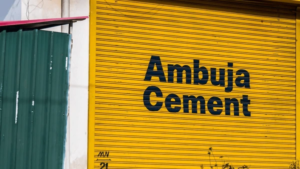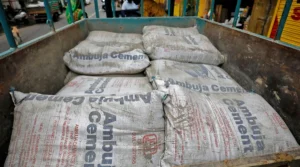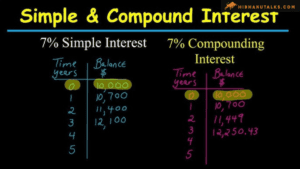
Ambuja Cements Block Deal: Key Details and Financial Overview
Contents
Ambuja Cements Block Deal
Ambuja Cements Block Deal: Key Details and Financial Overview
On August 23, 2024, a significant block deal involving Ambuja Cements took place, where 2.7 crore shares were traded at ₹626 per share. This transaction, valued at ₹1,712 crore, was in line with expectations as reports had suggested that the Adani family was planning to sell around a 3% stake in the company.


Background on Adani Group’s Stake in Ambuja Cements
In March 2024, the Adani Group increased its stake in Ambuja Cements by converting 21.20 crore warrants into shares, resulting in an infusion of ₹6,661 crore. This move raised the Adani Group’s stake in Ambuja Cements, the second-largest cement company in India, by 3.6%, bringing their total ownership to 66.7%.
The conversion was approved by the board of Ambuja Cements and was executed at a price of ₹314.15 per share. This strategic move is part of the Adani Group’s broader efforts to strengthen its position in the cement industry, which began with the acquisition of Holcim’s stake in Ambuja Cements and ACC in 2022.
Details of the Block Deal and Strategic Implications
The recent block deal is part of a strategic portfolio management approach by the Adani Group, aiming to diversify the shareholder base and attract long-term investors, especially those focused on infrastructure assets. The shares involved in the deal will be subject to a 60-day lock-up period, except for transfers within the promoter group.
Reports indicate that the promoters might sell up to 7 crore shares, or 2.84% of Ambuja Cements, for approximately ₹4,198 crore. The offer price was set at ₹600 per share, a 5% discount to the previous day’s closing price on the BSE.
Comparison with Adani Group’s Portfolio Management Approach
The Adani Group, led by billionaire Gautam Adani, manages a vast portfolio of shares worth $125 billion across its 10 listed companies. Similar to Berkshire Hathaway, the group actively manages its investment portfolios, including owner stocks, to maintain strategic flexibility for future acquisitions or other corporate actions. This dynamic approach allows the group to accommodate the needs of long-term investors, who may occasionally need to liquidate part of their holdings.


Ambuja Cements Q1 Financial Performance
For the first quarter ending June 2024, Ambuja Cements reported a consolidated net profit of ₹789.63 crore, down from ₹1,135.46 crore in the same period last year. The company’s consolidated revenue from operations stood at ₹8,311.48 crore for the June quarter, compared to ₹8,712.90 crore in the corresponding period of the previous fiscal year. Total expenses for the quarter were ₹7,566.91 crore, while total income, including other income, amounted to ₹8,666.20 crore.
FAQs
- What was the value of the block deal involving Ambuja Cements on August 23, 2024?
- The block deal was valued at ₹1,712 crore, with 2.7 crore shares traded at ₹626 per share.
- Why did the Adani Group increase its stake in Ambuja Cements?
- The Adani Group increased its stake by converting 21.20 crore warrants into shares, infusing ₹6,661 crore into the company. This move was part of a strategic effort to strengthen their position in the cement industry.
- What is the significance of the 60-day lock-up period for the shares involved in the block deal?
- The 60-day lock-up period ensures that the shares cannot be sold or transferred, except to other promoter group members, helping to maintain stability in the shareholder base during this period.
- How does the Adani Group manage its investment portfolios?
- The Adani Group actively manages its portfolios, including owner stocks, to maintain strategic flexibility and accommodate the needs of long-term investors, similar to the approach used by Berkshire Hathaway.
- What were Ambuja Cements’ financial results for Q1 2024?
- Ambuja Cements reported a consolidated net profit of ₹789.63 crore for the first quarter of 2024, with consolidated revenue from operations at ₹8,311.48 crore.


Advantages
- Increased Stake and Influence:
- The Adani Group’s increased stake in Ambuja Cements strengthens its influence and control over the company, aligning with its broader strategy in the cement industry.
- Attraction of Long-Term Investors:
- The block deal and strategic portfolio management attract long-term investors, which can lead to more stable and sustained growth for the company.
- Financial Flexibility:
- The infusion of ₹6,661 crore provides Ambuja Cements with financial flexibility to invest in expansion, technology upgrades, and other strategic initiatives.
- Enhanced Market Position:
- The deal helps Ambuja Cements maintain its position as the second-largest cement company in India, with the backing of a financially strong promoter group.


Disadvantages
- Potential Market Volatility:
- The sale of a significant stake by the Adani Group could lead to market volatility and impact the stock price of Ambuja Cements in the short term.
- Decreased Promoter Holding:
- While the sale aims to diversify the shareholder base, it also results in a decrease in promoter holding, which could be perceived negatively by some investors.
- Lock-Up Period Restrictions:
- The 60-day lock-up period limits the liquidity of the shares involved in the block deal, potentially affecting trading volumes during this period.
- Impact on Q1 Financial Performance:
- The drop in net profit and revenue in Q1 2024 compared to the previous year may raise concerns among investors about the company’s short-term financial health.





















1 comment